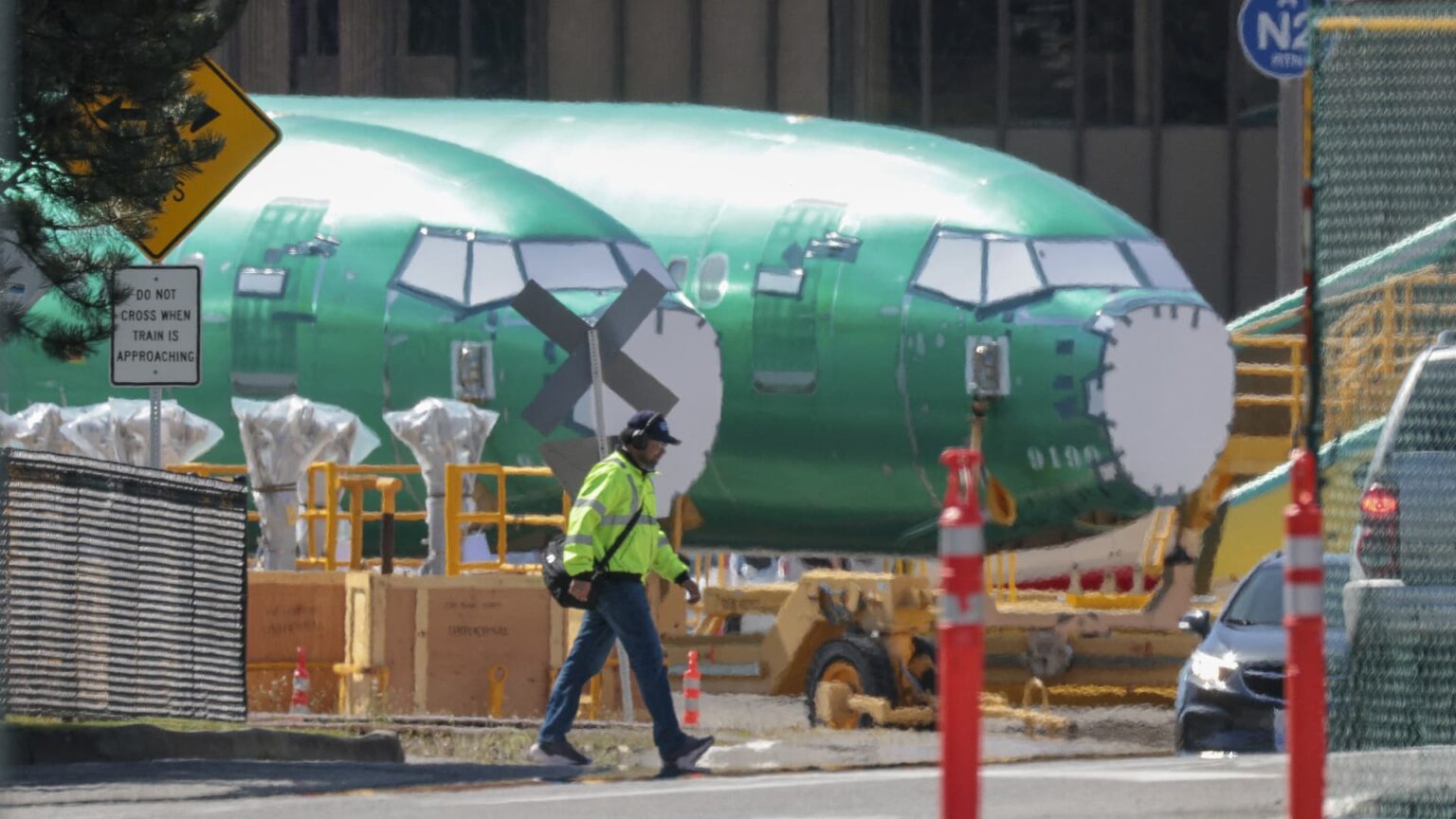
Boeing is preparing to ask for Federal Aviation Administration approval to ramp up production of its bestselling 737 Max jets to 42 a month later this year, CEO Kelly Ortberg said Wednesday, as airplane deliveries picked up this year and the company narrowed its losses.
Boeing reported a first-quarter net loss of $31 million, improvement from a loss of $355 million a year earlier, as revenue rose 18% to $19.5 billion, slightly ahead of analysts’ estimates.
The company’s cash burn of about $2.3 billion was an improvement over the nearly $4 billion it used in the first quarter of 2024, and was better than analysts expected. Ortberg told CNBC’s “Squawk on the Street” that the company is on track to generate cash in the second half of the year.
Shares of Boeing gained more than 6% in morning trading.
The results include only the impact of global tariffs as of March 31, the company said. Executives will get questions on Wednesday’s 10:30 a.m. ET earnings call about tariffs as the manufacturer is currently caught in the crosshairs of President Donald Trump’s trade war, which is set to drive up prices of aircraft and imported parts and materials.
GE Aerospace CEO Larry Culp said Tuesday that he’s met with Trump and suggested restoring duty-free trade for the aerospace industry, a major U.S. exporter that helps soften the United States’ trade deficit. GE, which makes aircraft engines, and RTX said they expect tariffs to cost more than $1 billion combined this year.
“While we are closely watching the developments in global trade, our strong start to the year combined with the demand for airplanes and our half trillion-dollar backlog for our products and services gives us the flexibility we need to navigate this environment,” Boeing CEO Ortberg said in a staff note Wednesday.
Here’s how Boeing performed compared with what Wall Street analysts surveyed by LSEG expected for the first quarter:
- Loss per share: 49 cents adjusted vs. $1.29 loss expected
- Revenue: $19.5 billion vs. $19.45 billion expected
On a per-share basis, the company reported a loss of 16 cents, compared with a loss of 56 cents during the same quarter a year earlier. Adjusting for one-time items related to pensions costs and income taxes, among others, Boeing reported a loss of 49 cents per share.
Ortberg, who was hired last year and tasked with getting the manufacturer past a series of safety and manufacturing crises, outlined progress, including production rates of its best-selling 737 Max.
The CEO has in recent months touted improved safety and manufacturing processes at Boeing’s factories as he tries to guide the company past several accidents, including a door plug that blew out from a packed flight midair in January 2024 after the 737 Max left Boeing’s factory without key bolts installed. There were no fatalities or major injuries.
Last week, Boeing released results of an employee survey that showed that only 27% would highly recommend working at Boeing and that 67% felt proud of working at Boeing, down from 91% in 2013. Less than half of employee respondents said they had confidence in senior leaders’ ability to “make decisions, communicate direction and respond to concerns raised by employees.”
Since the January 2024 accident, Boeing must receive approval from the FAA to increase production of the 737 Max to above 38 jets a month. Boeing had been producing significantly below that level after the accident and a nearly two-month union strike last year halted much of the company’s production.
Revenue in Boeing’s commercial airplane unit rose 75% during the first quarter from a year ago to $8.1 billion, with deliveries up to 130 planes from 83 a year ago.
“We are moving in the right direction and making progress as we reported our first-quarter 2025 results today,” Ortberg said in Wednesday’s staff memo. “From delivering more airplanes to scoring a transformational win for the fighter of the future, there is a lot of good work happening across our teams, and we are seeing positive results in the four key areas of our recovery plan that will position us for the rest of the year and beyond.”
Boeing has been refocusing its efforts on its core businesses. On Tuesday, it announced it would sell parts of its digital aviation businesses, including its Jeppesen navigation unit, to Thoma Bravo for $10.55 billion in an all-cash deal.
Revenue in its defense unit, which has been plagued with cost-overruns and quality issues, fell 9% during the first quarter to $6.3 billion, though the company recently scored a major win after Trump awarded Boeing a contract to build the U.S. Air Force’s all-new fighter jet, dubbed the F-47.
This is breaking news. Check back for updates.

